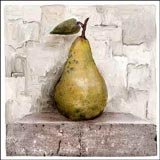/PAlogo_v2.gif)
/PAlogo_v2.gif) |
|
Post Reply 
|
Page <1 12131415> |
| Author | |||
Dayvenkirq 
Forum Senior Member 

Joined: May 25 2011 Location: Los Angeles, CA Status: Offline Points: 10970 |
 Posted: August 15 2014 at 11:02 Posted: August 15 2014 at 11:02 |
||

|
|||
 |
|||
The Doctor 
Special Collaborator 

Honorary Collaborator Joined: June 23 2005 Location: The Tardis Status: Offline Points: 8543 |
 Posted: August 15 2014 at 11:01 Posted: August 15 2014 at 11:01 |
||
|
I use it all the time. "Hey buddy, got alight?"

|
|||
|
I can understand your anger at me, but what did the horse I rode in on ever do to you?
|
|||
 |
|||
Dayvenkirq 
Forum Senior Member 

Joined: May 25 2011 Location: Los Angeles, CA Status: Offline Points: 10970 |
 Posted: August 15 2014 at 10:55 Posted: August 15 2014 at 10:55 |
||
 |
|||
Gerinski 
Prog Reviewer 

Joined: February 10 2010 Location: Barcelona Spain Status: Offline Points: 5160 |
 Posted: August 15 2014 at 07:58 Posted: August 15 2014 at 07:58 |
||
I can't say for sure but I guess they did. We use caldera meaning either cauldron, kettle, boiler, the volcano mouth, the heart piece of a steam locomotive or other steam machines...
|
|||
 |
|||
Dean 
Special Collaborator 

Retired Admin and Amateur Layabout Joined: May 13 2007 Location: Europe Status: Offline Points: 37575 |
 Posted: August 15 2014 at 07:39 Posted: August 15 2014 at 07:39 |
||
|
I was thinking of words we borrowed directly from Spanish like cargo, ranch and caldera whose English meaning is slightly different from similar English words with the same Latin root. For example caldera is derived from the Latin calderia meaning boiling pot, where we get (by way of a different route) cauldron, we don't use cauldron when we mean "mouth of a volcano" and we don't use caldera when we mean "cooking pot"... So my question would be, did the Spanish use caldera as a geological term before the English stole the word?
|
|||
|
What?
|
|||
 |
|||
Gerinski 
Prog Reviewer 

Joined: February 10 2010 Location: Barcelona Spain Status: Offline Points: 5160 |
 Posted: August 15 2014 at 07:04 Posted: August 15 2014 at 07:04 |
||
Ugh... letters are not really my strength... I'l think about it. Of course many English words have Latin roots so they may be similar to their Spanish counterparts but this does not mean that they were borrowed from Spanish into English, most likely they came directly from Latin or from any other Latin language such as French or Italian. Likewise many anglicisms are used in Spanish, and some of them may have those Latin roots, but again this does not mean that the word was originally borrowed in English from Spanish and then returned in its anglicised form. An example could be aquarium. It has the Latin root aqua (water, agua in Spanish) and although the proper Spanish word in Spanish is acuario, few people use it anymore and most people will now say or write aquarium or perhapsacuarium. But I don't think it came into English from Spanish, rather it came directly from Latin. Possibly more clear cases can be found in the States were the Latin-American presence has been and is very important so the direct interplay between Spanish and English has been much stronger than in Europe, but I'm not so familiar with the modern Spanish they talk in the States.
|
|||
 |
|||
Dean 
Special Collaborator 

Retired Admin and Amateur Layabout Joined: May 13 2007 Location: Europe Status: Offline Points: 37575 |
 Posted: August 15 2014 at 05:07 Posted: August 15 2014 at 05:07 |
||
Do you know of any words commonly used in Spanish that were borrowed into English and then taken back in their Anglicised form?
|
|||
|
What?
|
|||
 |
|||
Gerinski 
Prog Reviewer 

Joined: February 10 2010 Location: Barcelona Spain Status: Offline Points: 5160 |
 Posted: August 15 2014 at 04:35 Posted: August 15 2014 at 04:35 |
||
Indeed
|
|||
 |
|||
Dean 
Special Collaborator 

Retired Admin and Amateur Layabout Joined: May 13 2007 Location: Europe Status: Offline Points: 37575 |
 Posted: August 15 2014 at 04:30 Posted: August 15 2014 at 04:30 |
||
Ah, it's less curious then. I presume that the Catalan word is wholly of Catalan derivation and its similarity to the Anglicised form is just consequence of both Catalan and English using the "-ic" suffix to turn a noun into an adjective.
|
|||
|
What?
|
|||
 |
|||
Gerinski 
Prog Reviewer 

Joined: February 10 2010 Location: Barcelona Spain Status: Offline Points: 5160 |
 Posted: August 15 2014 at 04:13 Posted: August 15 2014 at 04:13 |
||
|
^ the spanish actual adjective is quijotesco (noun quijotería). Curiously though, the adjective in catalan is quixòtic.
|
|||
 |
|||
Dean 
Special Collaborator 

Retired Admin and Amateur Layabout Joined: May 13 2007 Location: Europe Status: Offline Points: 37575 |
 Posted: August 15 2014 at 04:06 Posted: August 15 2014 at 04:06 |
||
That's curious ... is it used in that Anglicised form or is it used in some form derived from the Spanish spelling of Quijote?
|
|||
|
What?
|
|||
 |
|||
Gerinski 
Prog Reviewer 

Joined: February 10 2010 Location: Barcelona Spain Status: Offline Points: 5160 |
 Posted: August 15 2014 at 03:34 Posted: August 15 2014 at 03:34 |
||
I have this book Musicophilia (Tales of Music and the Brain) by neurologist Oliver Sacks, in which he discusses several quite amazing cases of people who's neurological condition has profound effects in their musicality. It's quite some time ago that I read it but I remember for example one man in his 40's who never had any particular interest in music, then was stuck by a lightning and suddenly had an urge to learn playing piano. Or people who after having suffered a seizure or brain damage have musical hallucinations, or become suddenly musical, or the opposite. Or an orquestra conductor who after suffering brain damage suffers severe amnesia and can not remember anything further than 7 seconds except for the music, he can still conduct full symphonies. And stories like that. 
Quixotic is a frequently used word in Spanish (not surprising as this book is considered one of the main works of classic Spanish literature).
|
|||
 |
|||
Dean 
Special Collaborator 

Retired Admin and Amateur Layabout Joined: May 13 2007 Location: Europe Status: Offline Points: 37575 |
 Posted: August 15 2014 at 03:19 Posted: August 15 2014 at 03:19 |
||
copacetic ... it's certainly an odd one (and a word I've never heard before) - the word certainly looks English but acetic means sour or like vinegar and "cop" isn't a negating prefix. Since it is of wholly North American origin my guess is its origin is based in street slang and has no etymological derivation. |
|||
|
What?
|
|||
 |
|||
Dayvenkirq 
Forum Senior Member 

Joined: May 25 2011 Location: Los Angeles, CA Status: Offline Points: 10970 |
 Posted: August 15 2014 at 00:17 Posted: August 15 2014 at 00:17 |
||
|
^ Nice.
 ... Though I have to say that, strangely, I've never heard anyone use the word "copacetic". ... Though I have to say that, strangely, I've never heard anyone use the word "copacetic".  Two more based on what I've seen on that page (at this moment): stratum and epilimnion. Sometimes my brain functions so poorly that to get an idea of what the word means, I have to go to Google Images: http://www.islandnet.com/~see/weather/graphics/photos0506/lakelayers.jpg
Edited by Dayvenkirq - August 15 2014 at 00:28 |
|||
 |
|||
zachfive 
Forum Senior Member 

Joined: November 13 2005 Location: Kitsap WA Status: Offline Points: 770 |
 Posted: August 14 2014 at 23:38 Posted: August 14 2014 at 23:38 |
||
|
A good English word of debated/unknown etymology(another good one) is copacetic. Meaning; fine, alright, excellent, all good. Most used in when asking someone or a group of people if they understand or are alright to continue...
Also this website is right up this threads alley http://www.worldwidewords.org/index.htm
|
|||
 |
|||
Dayvenkirq 
Forum Senior Member 

Joined: May 25 2011 Location: Los Angeles, CA Status: Offline Points: 10970 |
 Posted: August 14 2014 at 23:03 Posted: August 14 2014 at 23:03 |
||
|
^ Oh, there are more than that! ... I bet there are many more than that, not just people as objects. I guess that just as long as you are allowed to be creative with the language, there has to be a myriad of -philes one could come up with. E.g., musicaphile/musicophile. How could I forget about the postfix?
 One more word from me for today: quixotic. (I've never read Don Quixote, but I'd only guess what its protagonist is like.) I don't want to add "prerogative"; we all should know that one.
Edited by Dayvenkirq - August 14 2014 at 23:06 |
|||
 |
|||
A Person 
Forum Senior Member 
Joined: November 10 2008 Location: __ Status: Offline Points: 65760 |
 Posted: August 14 2014 at 22:55 Posted: August 14 2014 at 22:55 |
||
As far as age goes, there are in order of age: nepiophilia (infant to toddler), pedophilia (prepubscent children), hebephilia (pubescent children), ephebophilia (postpubscent children), teleiophilia (adults), and gerontophilia (elderly). Ones I put in italics are ones I didn't know of until I looked them up.
Edited by A Person - August 14 2014 at 23:00 |
|||
 |
|||
Dayvenkirq 
Forum Senior Member 

Joined: May 25 2011 Location: Los Angeles, CA Status: Offline Points: 10970 |
 Posted: August 14 2014 at 22:48 Posted: August 14 2014 at 22:48 |
||
Here's another one I've never heard: ephebophile. Another word underlined with read by the software as if it doesn't exist. Exactly how many -philes are there out there?
Edited by Dayvenkirq - August 14 2014 at 22:51 |
|||
 |
|||
Atavachron 
Special Collaborator 

Honorary Collaborator Joined: September 30 2006 Location: Pearland Status: Offline Points: 65792 |
 Posted: August 14 2014 at 22:41 Posted: August 14 2014 at 22:41 |
||
|
As for phrases (or metaphors), their origins are always interesting; e.g. "Waiting for the other shoe to drop" has become symbology, but if you've ever lived with someone who loudly drops their hard-sole shoes on a wood floor, you cringe when the first one drops because you know the second one is coming. A small human reality of day-to-day life becomes a representation of something more.
As for individual words, they continuously fascinate me. Use of the best single word to describe what you mean can be a real challenge but very rewarding. As the Beatles said, "Indicate precisely what you mean to say". Better advice never given. |
|||
|
"Too often we enjoy the comfort of opinion without the discomfort of thought." -- John F. Kennedy
|
|||
 |
|||
Dayvenkirq 
Forum Senior Member 

Joined: May 25 2011 Location: Los Angeles, CA Status: Offline Points: 10970 |
 Posted: August 14 2014 at 17:08 Posted: August 14 2014 at 17:08 |
||
 This web-page suggests a rather "blurry" etymological history behind the expression. There are some Norse roots, some Greek roots. Quite a few theories there. Edited by Dayvenkirq - August 14 2014 at 17:26 |
|||
 |
|||
Post Reply 
|
Page <1 12131415> |
| Forum Jump | Forum Permissions  You cannot post new topics in this forum You cannot reply to topics in this forum You cannot delete your posts in this forum You cannot edit your posts in this forum You cannot create polls in this forum You cannot vote in polls in this forum |